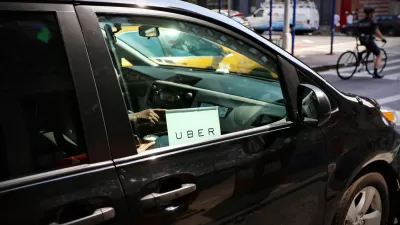The era of cheap, on-demand services is coming to a close as unprofitable startups face the realities of capitalism.

Writing in The Atlantic, Derek Thompson warns of the “end of the millennial lifestyle subsidy,” that blissful era when Uber rides across town cost a few dollars and you could have a meal delivered from any restaurant for a nominal extra fee. “Almost each time you or I ordered a pizza or hailed a taxi, the company behind that app lost money. In effect, these start-ups, backed by venture capital, were paying us, the consumers, to buy their products.”
Yet investors continued to support companies that grew their user bases while losing money. “As long as money was cheap and Silicon Valley told itself the next world-conquering consumer-tech firm was one funding round away, the best way for a start-up to make money from venture capitalists was to lose money acquiring a gazillion customers.”
Now, those companies are facing a reckoning. “These start-ups weren’t nonprofits, charities, or state-run socialist enterprises. Eventually, they had to do a capitalism and turn a profit.” By 2022, “Rising interest rates turned off the spigot for money-losing start-ups, which, combined with energy inflation and rising wages for low-income workers, has forced Uber, Lyft, and all the rest to make their services more expensive.”
Meanwhile, improved labor market conditions mean that workers have more leverage over employers. “Today, job openings are historically plentiful and nominal wages are rising fastest for low-income workers.”
It turns out, Thompson concludes, “The golden age of bougie on-demand urban-tech discounting has come to a close.” We may now have to go back to paying the real cost of products and services.
FULL STORY: Why Urban Life Suddenly Got Way More Expensive

Alabama: Trump Terminates Settlements for Black Communities Harmed By Raw Sewage
Trump deemed the landmark civil rights agreement “illegal DEI and environmental justice policy.”

Planetizen Federal Action Tracker
A weekly monitor of how Trump’s orders and actions are impacting planners and planning in America.

Why Should We Subsidize Public Transportation?
Many public transit agencies face financial stress due to rising costs, declining fare revenue, and declining subsidies. Transit advocates must provide a strong business case for increasing public transit funding.

Understanding Road Diets
An explainer from Momentum highlights the advantages of reducing vehicle lanes in favor of more bike, transit, and pedestrian infrastructure.

New California Law Regulates Warehouse Pollution
A new law tightens building and emissions regulations for large distribution warehouses to mitigate air pollution and traffic in surrounding communities.

Phoenix Announces Opening Date for Light Rail Extension
The South Central extension will connect South Phoenix to downtown and other major hubs starting on June 7.
Urban Design for Planners 1: Software Tools
This six-course series explores essential urban design concepts using open source software and equips planners with the tools they need to participate fully in the urban design process.
Planning for Universal Design
Learn the tools for implementing Universal Design in planning regulations.
Caltrans
Smith Gee Studio
Institute for Housing and Urban Development Studies (IHS)
City of Grandview
Harvard GSD Executive Education
Toledo-Lucas County Plan Commissions
Salt Lake City
NYU Wagner Graduate School of Public Service





























